You are forgiven if you think an English high court just awarded a $9 billion fine against Nigeria in a case of breach of contract with Process and Industrial Developments Limited (P&ID), a little-known Irish engineering and project management company. Actually, the award was made as far back as July 2015 by an arbitration panel sitting in London. What happened in London on Friday was a failed legal move by Nigeria to stop the enforcement of that judgment. If it is implemented, Nigeria’s bank accounts in the UK, where parts of our foreign reserves are warehoused, would be at risk and that would be a catastrophe for our international trade, to put it in a less scary language.
Although Nigeria is fighting tooth and nail to stop the enforcement of what is easily one of the largest arbitration awards in human history, anyone familiar with the entire fiasco knows that we are fighting a tough battle. We are primarily basing our objection on the fact that Nigeria is a sovereign state and “has an absolute right to obtain an authoritative determination of its sovereign immunity”. Put another way, we are arguing that we have immunity as a sovereign nation — and therefore the judgment cannot be enforced against us. We are also arguing that P&ID did not fulfil its own part of the contract and cannot, therefore, be making any claims on us.
Let us briefly go over the genesis of the transaction, which could end up in an apocalypse. P&ID was founded by Irishmen Michael Quinn and the late Brendan Cahill, two men who had had over 30 years’ experience in engineering projects in Nigeria. In January 2010, the federal government entered into a 20-year gas and supply processing agreement (GSPA) with P&ID to build a gas processing facility. P&ID was to refine associated natural gas into non-associated gas to power the national electric grid. Dr Rilwanu Lukman, who died in 2014, was the minister of petroleum at the time (President Umaru Musa Yar’Adua was on a medical trip to Saudi Arabia).
Under the agreement, Nigeria was to receive 85 per cent of the refined non-associated gas, free of charge, for power generation and industrialisation. P&ID would receive the remaining 15 per cent and the by-products – namely methane, propane and butane – which it would export. Nigeria would also benefit from the export proceeds through its 10 per cent stake in P&ID. As in all agreements, there are obligations on both parties: the Nigerian government was to supply 150 million standard cubic feet (scf) of gas per day to the plant. This was to rise to 400 million scf in the life of the project. The gas was otherwise being flared by the oil-producing companies.
Advertisement
But there was an initial obligation on the country — the GSPA required the government to build a gas supply pipeline to the P&ID facility to be located in Adiabo, Odukpani LGA, Cross River state. The gas was to be sourced by the government from OMLs 67 and 123 operated by Addax Petroleum. And this was where everything began to go wrong. Nigeria did not build the pipeline. P&ID said it had spent about $40 million on the project and the failure of Nigeria to build the gas pipeline had breached the agreement. The crisis went unresolved and in August 2012, the company activated the arbitration clause, filing a case of breach of contract against Nigeria in London.
P&ID sought a compensatory award for loss of “potential” income. Nigeria argued that P&ID was supposed to have acquired the land in Cross River and built the processing facility before the government could build a gas pipeline to site. The company, however, argued that Article 6(b) of the GSPA did not state any such precondition. Apparently, the federal government had not shown any seriousness in building the pipeline and P&ID too had started foot-dragging. With the way the arbitration was going against Nigeria, the federal government started making moves to settle the dispute out of court. Offers were made to P&ID to that effect.
P&ID agreed to accept $850 million in compensation, negotiated down from an initial proposal of $1.5 billion by a government committee. The payment was to be made in four tranches — $100 million at first and then in three instalments of $250 million each. These were in the last days of President Jonathan, who had lost his re-election bid. He still wanted the figure reviewed downwards, but decided to leave matters for in-coming President Muhammadu Buhari. However, the Buhari administration, without a cabinet in place, did not follow up. P&ID then got the award in July 2015 — $6.6 billion for “loss of income” over the lifespan of the GSPA and $2.3 billion in interests.
Advertisement
In fairness to Buhari, when he came in, Nigeria’s economy was already on its knees. Oil prices were down, there was forex crunch and states were owing salaries. The last thing on his mind was an $850 million payment for a project that never was. It seemed somebody whispered to Buhari to ignore the settlement agreement because of the “PDP factor”. That was a very wrong approach, I would say. If Buhari did not like the figure, he could have further negotiated it down. Nigeria is a sovereign entity and agreements are binding on all administrations. The P&ID guys complained that they waited in vain for Nigeria’s phone call, so they continued with the arbitration and got the huge award.
What is the way forward? Nigeria is doing everything possible to make sure the judgment is not enforced. P&ID had instituted “recognition and enforcement” proceedings in the UK and the US. It won in both jurisdictions and this would allow them to seize (“attach”) Nigeria’s assets in both countries. However, Nigeria filed objections in the UK and the US on the basis of the country’s sovereignty. P&ID asked the US court to dismiss Nigeria’s objection as “frivolous” but the court has refused to do so, which gives us a ray of hope. Sadly, the English court on Friday dismissed Nigeria’s objection, which means the award can be enforced in the UK. We will surely appeal.
Now, here are my thoughts. If we had been a serious set of people, this gas project was going to benefit us tremendously and we should have followed through. For one, it would have helped in addressing gas flaring. The associated gas was to be refined for power generation. That would have improved power supply. Also, we would have earned forex from the export of the by-products. Meanwhile, when things were going wrong, we should have mounted a strong defence. When judgment was given against us in July 2015, we went to sleep. We could have challenged the tribunal immediately. We waited till 2018 before starting any serious challenge. What a shame.
P&ID argued that we did not build the gas infrastructure but the government has also said we cannot build a pipeline to a facility that does not exist. We are now asking: what did P&ID do to deserve the award? How can you award judgment for the full value of what they could have gained when they too did not build anything? This is a strong argument, but what did we canvass during arbitration? Why are we raising these issues now? We submitted to arbitration and are bound by the outcome. It is clear to me that we did not defend ourselves properly and diligently. We changed our lawyers midway and kept expanding the legal team — for the purpose of “job creation”.
Advertisement
Ab initio, the terms of the contract did not protect us in case P&ID failed to deliver. All international-standard contracts provide for contingent liabilities on both parties. We left ourselves so vulnerable in this one. I wish Lukman were alive to explain what he was thinking when he approved such a contract, which I understand was not vetted by the attorney-general of the federation at the time, Chief Michael Aondoakaa. The terms of the contract are a sad commentary on the way we sign agreements in Nigeria. No wonder some analysts question the fairness of the GSPA in the first place. But we cannot run away from it. We must find a bloodless way out of the quandary.
I still do not believe the P&ID issue is hopeless for Nigeria. To start with, $9 billion is so huge it is unrealistic to expect Nigeria to pay. But our “sovereignty” argument also looks pale to me. I do not pretend to be a lawyer, but when a state goes into a commercial transaction, it waves its sovereign immunity. This is not politics; this is business. We can fight this case for years, keep paying lawyers millions of dollars and still lose. I would, therefore, advise the government to call these P&ID guys for a meeting and quietly resolve this irritating matter over coffee and sandwiches. A soft answer turns away wrath. Enough of legal fireworks. Let’s go for reconciliation.
Above all, though, we must stop signing agreements that can hurt us gravely if we default — as we are indeed likely to default. Nigeria is notorious globally for not respecting the sanctity of contracts, much less the rule of law. Investors always complain about our historical culture of impunity. Unfortunately, we can behave anyhow within our territory but there is civilisation outside there and we cannot escape it. Evidently, too, there is lack of patriotism in the some of the agreements government officials sign. There is no personal liability when things go wrong. Heads don’t roll. People don’t go to jail. The attitude is like: whose money is it, anyway? Sad.
AND FOUR OTHER THINGS…
THE EL-ZAKZAKY SHOW
Advertisement
I thought the federal government had shown enough good faith in allowing Sheikh Ibraheem El-Zakzaky to go for medical treatment abroad, but it would appear the leader of the Islamic Movement of Nigeria (IMN) is trying to turn it into a circus. The level of public sympathy he currently enjoys derives from the fact that the military massacred hundreds of his followers and he has been in detention for over four years. This is totally indefensible in a democracy. However, we have now entered the phase in which those who would normally not touch El-Zakzaky with a barge-pole are now his sympathisers and chief advocates just to play politics. Opportunism.
RED HERRING
Advertisement
Ask Alhaji Muhammadu Sanusi II, the emir of Kano, why there is so much insecurity in Nigeria and he will establish a link between monetary and fiscal policies, youth unemployment, poverty and crime. Ask Alhaji Muhammadu Bashar, the emir of Gwandu, the same question and he will tell you straight off: “It’s the homosexuals, stupid!” There are emirs and there are emirs. Alhaji Abdulaziz Yari, the former Zamfara governor, once blamed fornication for the outbreak of meningitis in his state. Since he left office, EFCC and ICPC are also discovering other possible causes, such as his eight-year mismanagement of state resources as well as personal aggrandizement. Shame.
EYE SERVICE
Advertisement
Anytime President Muhammadu Buhari is in Daura, his home town, there is always uninterrupted power supply. So was the case during the Eid al-Adha last weekend. Unable to stomach the deceit, leaders from the five local government areas under the Daura emirate told the president that they only enjoy 24-hour electricity when he is in town. It reminds me of when Gen. Ibrahim Babangida, then military president, visited Ondo state in 1991 or 1992. One resident wrote an open letter to Babangida, asking him to “please visit again” because suddenly, “the bad roads were either tarred or repaired, the streets were cleaned up and we had 24-hour power supply”. Sham.
NAMING AND SHAMING
Advertisement
The Ekiti state government has started something unusual: naming and shaming those convicted of rape in the state. The first dishonour goes to Rev Asateru Gabriel, now described as “formerly” of St. Andrew’s Anglican Church, Ifisin-Ekiti, who was convicted for defiling a seven-year-old girl and is currently serving a five-year jail term. Many would consider this to be a good sociological initiative. The typical Nigerian is more worried about being publicly shamed than feeling guilty for doing a bad thing. We prefer shame to guilt. Nonetheless, I would be more delighted if this will go hand-in-hand with a massive crackdown on rape in our society. No rapist should go scot-free. Perverts.
1 comments

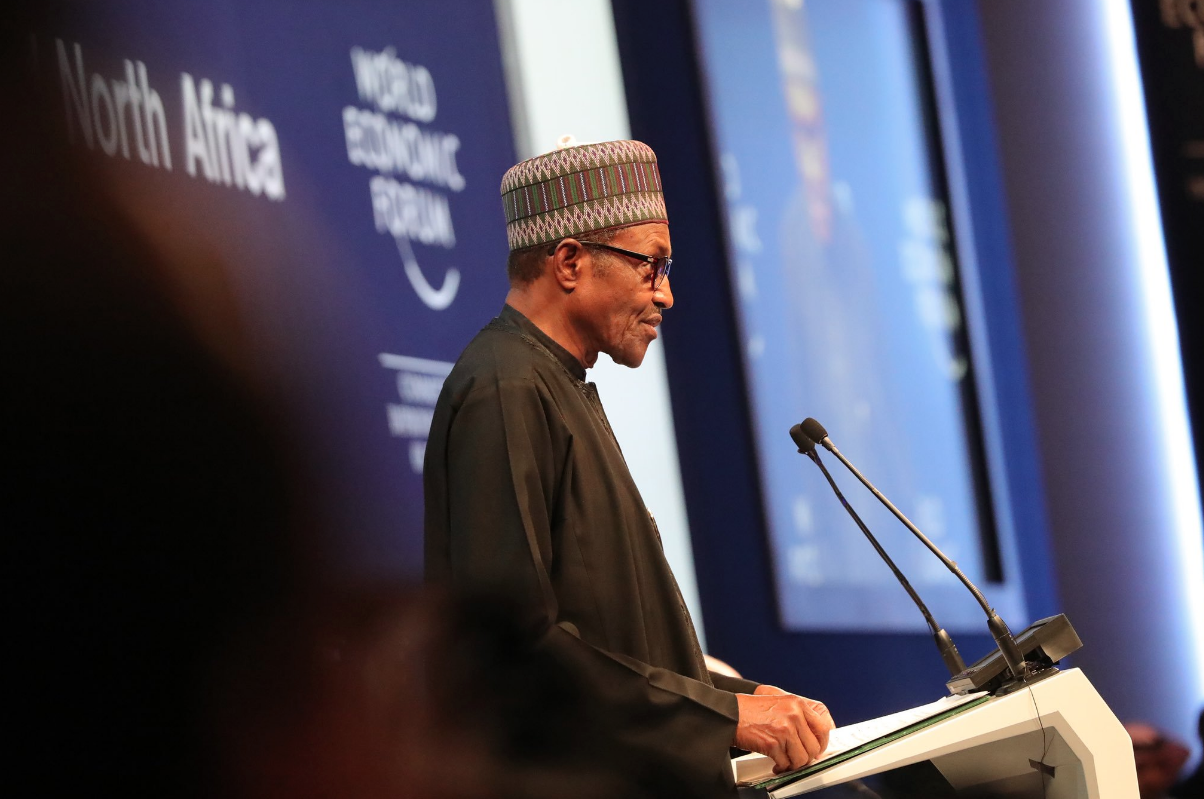
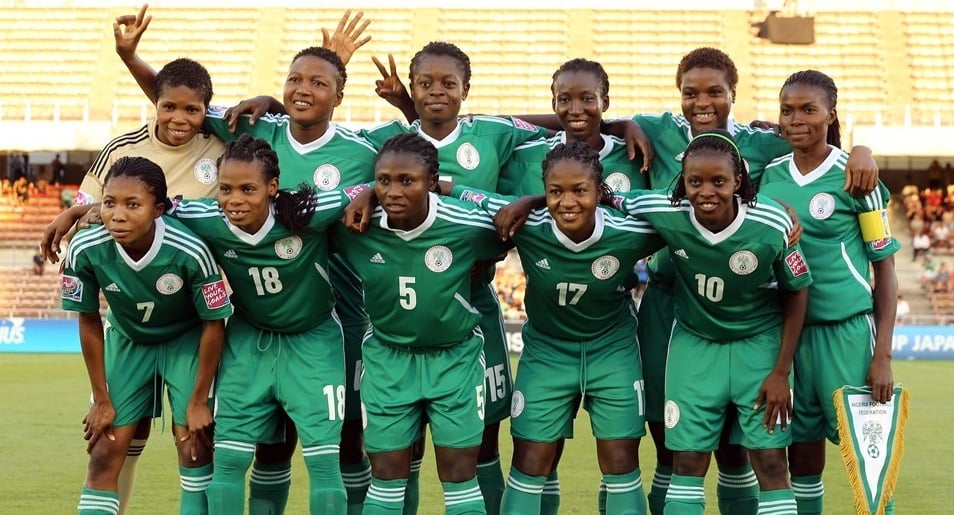
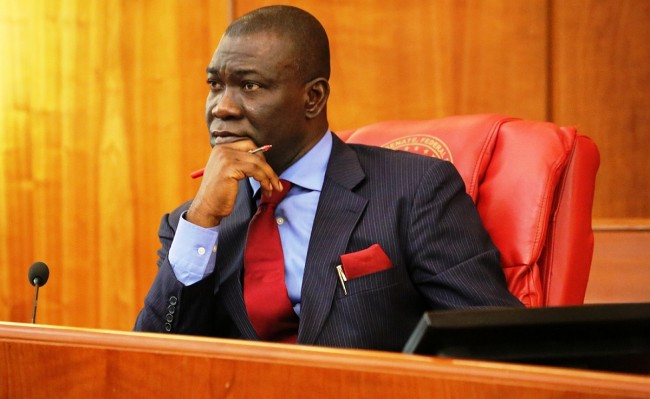
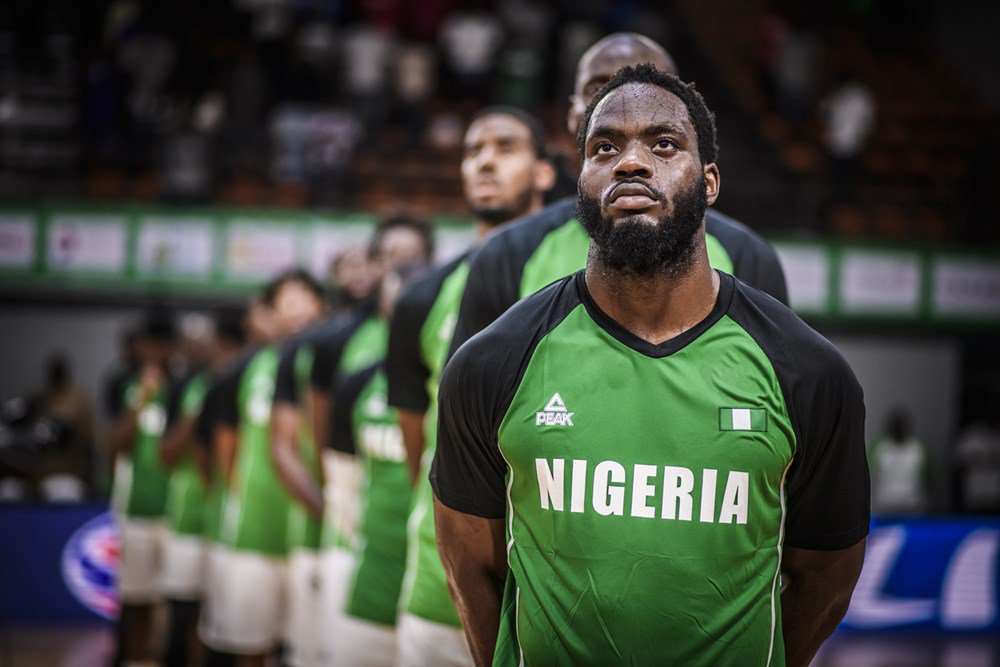
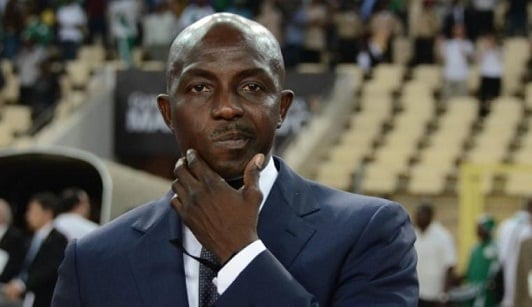
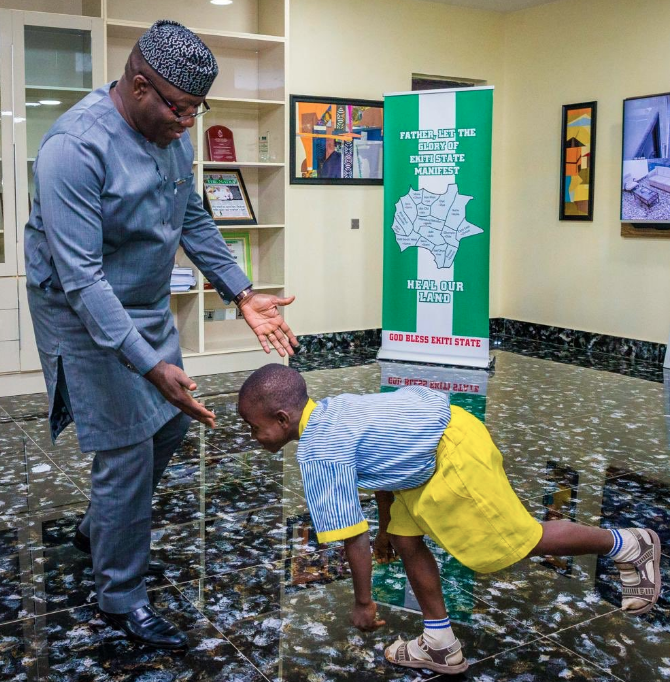
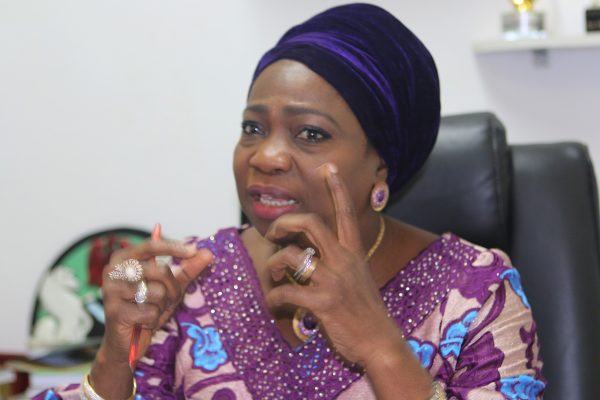
9 billion dollars award against Nigeria is typical case and mentality in Nigeria where government property is nobody’s property and so nobody cares, beside i strongly believe some people in Nigeria are going to benefit from this broad daylight stealing. The so called “Elzakzaky” is a con man, a fraudster and if care is not taken he will turn Northwestern Nigeria into a war zone like the Northeast.